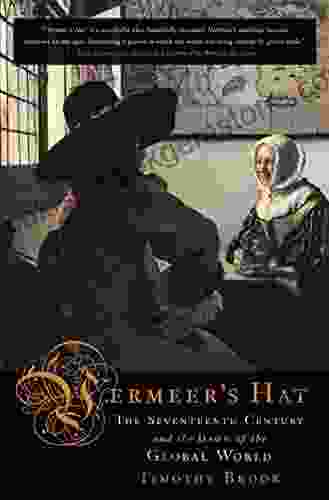Losing and Finding Race in America: Exploring the Complex Ways We Perceive and Experience

Race is a social construct that has been used to categorize and differentiate people based on physical characteristics, such as skin color, hair texture, and facial features. In the United States, the concept of race has been particularly salient, with a history of racial segregation, discrimination, and inequality. However, in recent years, there has been a growing movement to challenge the traditional understanding of race and to embrace a more fluid and inclusive definition. This article will explore the complex ways we perceive and experience race in America, examining both the challenges and opportunities that come with losing and finding our racial identities.
The Social Construction of Race
The concept of race is not based on any biological or genetic criteria. Instead, it is a social construct that has been created and reinforced through political, economic, and cultural factors. In the United States, the idea of race emerged during the colonial era, when European settlers used it to justify the enslavement of Africans. Over time, the concept of race became more rigid and hierarchical, with white people at the top and people of color at the bottom.
4.5 out of 5
| Language | : | English |
| File size | : | 1875 KB |
| Text-to-Speech | : | Enabled |
| Screen Reader | : | Supported |
| Enhanced typesetting | : | Enabled |
| X-Ray | : | Enabled |
| Word Wise | : | Enabled |
| Print length | : | 223 pages |
Today, the concept of race continues to be used to categorize and differentiate people, even though there is no scientific basis for ng so. This is because race has become deeply ingrained in our society, and it shapes the way we see ourselves and others.
The Challenges of Losing Race
For many people, the loss of race can be a profound experience. This is because race has often been a defining part of our identity, and losing it can feel like losing a part of ourselves. Additionally, losing race can come with a sense of loss of community and belonging.
There are a number of reasons why people might lose their sense of race. One reason is through interracial marriage and relationships. When people of different races marry or have children together, they create a new racial identity that is not easily categorized. Another reason for losing race is through adoption. When children are adopted by parents of a different race, they may not identify with the race of their adoptive parents.
Losing race can also happen through immigration. When people come to the United States from other countries, they may not identify with the racial categories that exist in the United States. This is because the concept of race is not the same in all cultures.
The Opportunities of Finding Race
While losing race can be a challenging experience, it can also be an opportunity for growth and transformation. When we lose our sense of race, we are forced to confront our own assumptions about race and to question the ways in which race has shaped our lives. This can lead to a deeper understanding of ourselves and our place in the world.
Additionally, losing race can open up new possibilities for connection and community. When we are not bound by the limitations of race, we are free to build relationships with people from all walks of life. This can lead to a more inclusive and just society.
The Future of Race in America
The future of race in America is uncertain. However, there are a number of trends that suggest that the traditional understanding of race is becoming increasingly fluid and inclusive. One trend is the growing number of interracial marriages and relationships. Another trend is the increasing diversity of the American population. As the population becomes more diverse, the old racial categories are becoming less meaningful.
It is also important to note that the concept of race is not static. It is constantly evolving and changing, as our understanding of the world changes. It is possible that in the future, the concept of race will become obsolete, and we will be able to see each other as individuals, rather than as members of different races.
Race is a complex and multifaceted issue. It is a social construct that has been used to categorize and differentiate people, but it is not based on any biological or genetic criteria. In the United States, the concept of race has been particularly salient, with a history of racial segregation, discrimination, and inequality. However, in recent years, there has been a growing movement to challenge the traditional understanding of race and to embrace a more fluid and inclusive definition.
The loss of race can be a challenging experience, but it can also be an opportunity for growth and transformation. When we lose our sense of race, we are forced to confront our own assumptions about race and to question the ways in which race has shaped our lives. This can lead to a deeper understanding of ourselves and our place in the world.
Additionally, losing race can open up new possibilities for connection and community. When we are not bound by the limitations of race, we are free to build relationships with people from all walks of life. This can lead to a more inclusive and just society.
The future of race in America is uncertain. However, there are a number of trends that suggest that the traditional understanding of race is becoming increasingly fluid and inclusive. It is possible that in the future, the concept of race will become obsolete, and we will be able to see each other as individuals, rather than as members of different races.
4.5 out of 5
| Language | : | English |
| File size | : | 1875 KB |
| Text-to-Speech | : | Enabled |
| Screen Reader | : | Supported |
| Enhanced typesetting | : | Enabled |
| X-Ray | : | Enabled |
| Word Wise | : | Enabled |
| Print length | : | 223 pages |
Do you want to contribute by writing guest posts on this blog?
Please contact us and send us a resume of previous articles that you have written.
 Best Book
Best Book Page Flip
Page Flip Bookshelf
Bookshelf Literary loom
Literary loom Chapter
Chapter Bookish
Bookish PageTurner
PageTurner Bibliophile
Bibliophile Story
Story Inkwell
Inkwell Bookworm
Bookworm Labyrinth
Labyrinth Plot Twist
Plot Twist Prose
Prose Paperback
Paperback Storyteller
Storyteller Sanctuary
Sanctuary Fiction
Fiction Reading
Reading Chronicle
Chronicle Read
Read Shani Greene Dowdell
Shani Greene Dowdell Marcelo Hernandez Castillo
Marcelo Hernandez Castillo John Davidson
John Davidson David S Luton
David S Luton Ruby Dixon
Ruby Dixon Philip Ball
Philip Ball Warren Dotz
Warren Dotz Janice Tingum
Janice Tingum Ward Eister
Ward Eister Ping Fu
Ping Fu Lauren Scruggs
Lauren Scruggs W R Tymms
W R Tymms Mick Huerta
Mick Huerta Klas Kristiansson
Klas Kristiansson Patrice Gopo
Patrice Gopo Karen Lewis
Karen Lewis Richard Paul Russo
Richard Paul Russo Martin Gardner
Martin Gardner William L Fox
William L Fox Sharon Mckee
Sharon Mckee Daniel Gibbs
Daniel Gibbs Korani Connolly
Korani Connolly Rosayra Pablo Cruz
Rosayra Pablo Cruz Mark Lane
Mark Lane Regine Abel
Regine Abel Kelly Gay
Kelly Gay Robbie Quinn
Robbie Quinn Julia Child
Julia Child William Evans
William Evans Stephen King
Stephen King Stuart Douglas
Stuart Douglas Naveed Rouhani
Naveed Rouhani Neil Bimbeau
Neil Bimbeau Jerry Saltz
Jerry Saltz Krystyna Chiger
Krystyna Chiger Patrick Drazen
Patrick Drazen Taniela Tabu
Taniela Tabu Sally Howard
Sally Howard John Thompson
John Thompson Tony Dungy
Tony Dungy Suzanne Fredericq
Suzanne Fredericq Shelley Shepard Gray
Shelley Shepard Gray Kyriacos C Markides
Kyriacos C Markides William Lidwell
William Lidwell Jodi Bombardier
Jodi Bombardier Rebecca Roanhorse
Rebecca Roanhorse Greg Gutfeld
Greg Gutfeld Richard Matheson
Richard Matheson Lisa See
Lisa See Trova Heffernan
Trova Heffernan Paul Seydor
Paul Seydor Nisha Garg
Nisha Garg Jubilee Brown
Jubilee Brown Robert Evans
Robert Evans Julia Summerfield
Julia Summerfield Shelly Kim
Shelly Kim David Kadavy
David Kadavy Noah Hurowitz
Noah Hurowitz Joe R Lansdale
Joe R Lansdale Tom Sterling
Tom Sterling K Alex Walker
K Alex Walker Katharine Branning
Katharine Branning Norman Bryson
Norman Bryson Donald J Trump
Donald J Trump Tasha Black
Tasha Black Vincent Van Gogh
Vincent Van Gogh Didier Ghez
Didier Ghez Christopher Lane
Christopher Lane William Hertling
William Hertling Svetlana Quindt
Svetlana Quindt Azim Nanji
Azim Nanji Randi Minetor
Randi Minetor T Stonefield
T Stonefield Tom Brosnahan
Tom Brosnahan Sharmila Sen
Sharmila Sen Duncan James
Duncan James Russ Howard
Russ Howard Michael Oher
Michael Oher Joseph Judson Dimock
Joseph Judson Dimock Dk Eyewitness
Dk Eyewitness 1st Ed 2021 Edition Kindle Edition
1st Ed 2021 Edition Kindle Edition Kim Barker
Kim Barker Roland L Mcintosh
Roland L Mcintosh Don Peri
Don Peri Jeff Shaara
Jeff Shaara Learning Through Play
Learning Through Play Philippa Ballantine
Philippa Ballantine Marc Cameron
Marc Cameron Lindy Viandier
Lindy Viandier Jonathan Clements
Jonathan Clements Margo Jefferson
Margo Jefferson Sean Robins
Sean Robins Andre Henry
Andre Henry Bill Rumpel
Bill Rumpel Reginald F Lewis
Reginald F Lewis Rem Koolhaas
Rem Koolhaas Oscar Owen
Oscar Owen Madhushree Ghosh
Madhushree Ghosh Ton Viet Ta
Ton Viet Ta Victoria Charles
Victoria Charles Sergio Toppi
Sergio Toppi Nick Axel
Nick Axel Miranda July
Miranda July Oprah Winfrey
Oprah Winfrey Tamsin Ley
Tamsin Ley Laird Barron
Laird Barron William Alexander Percy
William Alexander Percy Paul Chiasson
Paul Chiasson Lisa Maker
Lisa Maker Brian Kevin
Brian Kevin Lauren Beukes
Lauren Beukes Richard Fleischer
Richard Fleischer Kristina Harris
Kristina Harris Dave Brett
Dave Brett Mike Grist
Mike Grist W David Baird
W David Baird Joyce Roa
Joyce Roa Ben Box
Ben Box 1st Ed 2016 Edition
1st Ed 2016 Edition Michael Psellus
Michael Psellus Robyn Carr
Robyn Carr John Paul Stonard
John Paul Stonard John Donohue
John Donohue Toni Morrison
Toni Morrison Derek Baxter
Derek Baxter Tom Cotter
Tom Cotter Sherryl Woods
Sherryl Woods Sesali Bowen
Sesali Bowen Richard S Dunn
Richard S Dunn Jeff W Bens
Jeff W Bens Megan Carr
Megan Carr Rayna Denison
Rayna Denison Shaopeng Chen
Shaopeng Chen Joseph Johnson
Joseph Johnson Margaret Eggleton
Margaret Eggleton Jonathan D Sarna
Jonathan D Sarna Joan Breton Connelly
Joan Breton Connelly Mary Beard
Mary Beard Donna Williams
Donna Williams Dan X Solo
Dan X Solo Jenny Bowen
Jenny Bowen Jason A Ramos
Jason A Ramos Margo Bond Collins
Margo Bond Collins Veronica G Henry
Veronica G Henry Neal Adams
Neal Adams Carl E Schorske
Carl E Schorske Victoria Rivera Mckinley
Victoria Rivera Mckinley Nia Arthurs
Nia Arthurs Mary Heron Dyer
Mary Heron Dyer Sam Crescent
Sam Crescent Vic Shayne
Vic Shayne Sangeeta Prasad
Sangeeta Prasad Elliot Beier
Elliot Beier Giovanni Iannoni
Giovanni Iannoni Raquel Cepeda
Raquel Cepeda Walter Mosley
Walter Mosley Lesley Riley
Lesley Riley Stephen Kirkpatrick
Stephen Kirkpatrick Lara Quaranta
Lara Quaranta William Shatner
William Shatner Mark Strand
Mark Strand Chika Okeke Agulu
Chika Okeke Agulu Hope Edelman
Hope Edelman Louis L Amour
Louis L Amour Blair Davis
Blair Davis Paul Strathern
Paul Strathern Sean Platt
Sean Platt Mariko Higaki
Mariko Higaki Liz Scheier
Liz Scheier Pauli Murray
Pauli Murray Mary Breu
Mary Breu Sosha Davis
Sosha Davis Connie Easton
Connie Easton Nikita Thorn
Nikita Thorn Mary Matsuda Gruenewald
Mary Matsuda Gruenewald Ilana Benady
Ilana Benady Ruben Gallego
Ruben Gallego Deborah Fallows
Deborah Fallows Ari Goldberg
Ari Goldberg Graham Cole
Graham Cole Joe Kuster
Joe Kuster Miranda Bridges
Miranda Bridges Niobia Bryant
Niobia Bryant Nicki Thornton
Nicki Thornton Jo Thomas
Jo Thomas Karma Waltonen
Karma Waltonen M A Rothman
M A Rothman David Batchelor
David Batchelor Larry Taylor
Larry Taylor Robert Henri
Robert Henri Ted Bell
Ted Bell Patty A Wilson
Patty A Wilson Diana Kupershmit
Diana Kupershmit Harold Green Iii
Harold Green Iii David Hopkins
David Hopkins W Kamau Bell
W Kamau Bell Steve Glassman
Steve Glassman Jim Forest
Jim Forest Robin Hobb
Robin Hobb Michael F Steltenkamp
Michael F Steltenkamp Matthew Stavros
Matthew Stavros Ellis Cose
Ellis Cose Tonya Burrows
Tonya Burrows Miriam F Williams
Miriam F Williams Linda Rodriguez Mcrobbie
Linda Rodriguez Mcrobbie Laura Reiter
Laura Reiter Omar Sharif Jr
Omar Sharif Jr Rebecca Kobrin
Rebecca Kobrin Bruce Spydar
Bruce Spydar Nathan Mccall
Nathan Mccall Richard W Pointer
Richard W Pointer Peter Mayle
Peter Mayle Trevor Carroll
Trevor Carroll Nicole Pivirotto
Nicole Pivirotto John Dvorak
John Dvorak Bob Santos
Bob Santos Brenda Lyons
Brenda Lyons Priscilla Batzell
Priscilla Batzell Baratunde Thurston
Baratunde Thurston David Cummings
David Cummings Grace Lee Boggs
Grace Lee Boggs Taylor Mason
Taylor Mason Odie Hawkins
Odie Hawkins Tanya Talaga
Tanya Talaga Burst Books
Burst Books Mike Lowery
Mike Lowery Steve Van Beek
Steve Van Beek Wes Hubert
Wes Hubert Peter L Phillips
Peter L Phillips Nik Mahon
Nik Mahon Daniel Schinhofen
Daniel Schinhofen Mariam Elias
Mariam Elias Clara Nieto
Clara Nieto Kale James
Kale James Eamon Evans
Eamon Evans Javy Lopez
Javy Lopez Stephen Saad
Stephen Saad Pero Tafur
Pero Tafur Vowron Prime
Vowron Prime Kathy Cano Murillo
Kathy Cano Murillo Alicia Beckton
Alicia Beckton John L Turner
John L Turner Tobias Zimmermann
Tobias Zimmermann Requiem Scolopendra
Requiem Scolopendra Michael Smith
Michael Smith Kayla Watkins
Kayla Watkins Usman Zafar Paracha
Usman Zafar Paracha Julie Beemer
Julie Beemer Jl Seegars
Jl Seegars Yuniya Kawamura
Yuniya Kawamura Megan Marshall
Megan Marshall K Wan
K Wan Wallace Terry
Wallace Terry Dean Koontz
Dean Koontz Rajat Gupta
Rajat Gupta Paul A Moua
Paul A Moua Anne H Berry
Anne H Berry Tricia Rose
Tricia Rose Phoenix Grey
Phoenix Grey Tim Severin
Tim Severin M C Roberts
M C Roberts Joseph Toone
Joseph Toone Jonathan Smidt
Jonathan Smidt Mahi Wasfy
Mahi Wasfy Kenneth Ma
Kenneth Ma Robert Gottlieb
Robert Gottlieb Calum Best
Calum Best Scott Brown
Scott Brown Richard Lippe
Richard Lippe Marteeka Karland
Marteeka Karland Jeff Mellem
Jeff Mellem Stephen Coles
Stephen Coles Malcolm C Salaman
Malcolm C Salaman Kitty Williams
Kitty Williams Tricia Martineau Wagner
Tricia Martineau Wagner Victor Steffensen
Victor Steffensen Sian Pritchard Jones
Sian Pritchard Jones Helm Wotzkow
Helm Wotzkow Bernth Lindfors
Bernth Lindfors Neil Fontaine
Neil Fontaine Vicki Rozema
Vicki Rozema Keiko Okamoto
Keiko Okamoto Richard Delacy
Richard Delacy Tom Sito
Tom Sito Robert Knott
Robert Knott Lincoln Michel
Lincoln Michel Bernadette Simpson
Bernadette Simpson Nic Oatridge
Nic Oatridge Sally J Pla
Sally J Pla Megan Wells
Megan Wells Will Stovall
Will Stovall Lisa Brahin
Lisa Brahin James Ernest Shaw
James Ernest Shaw Jean Guerrero
Jean Guerrero Cathy Johnson
Cathy Johnson Ketut Suasti
Ketut Suasti Bwwm Club
Bwwm Club John Lewis Burckhardt
John Lewis Burckhardt Timothy Brook
Timothy Brook Philip K Dick
Philip K Dick Mimi Grace
Mimi Grace Robert Macklin
Robert Macklin Jessica Fanigliulo
Jessica Fanigliulo Larisa Golubeva
Larisa Golubeva Tapirus
Tapirus Mimi Thorisson
Mimi Thorisson Silvana Paternostro
Silvana Paternostro Reanne Hemingway Douglass
Reanne Hemingway Douglass Lynn Garafola
Lynn Garafola Shani Mootoo
Shani Mootoo Liz Chaderton
Liz Chaderton Paul Thimou
Paul Thimou Rough Guides
Rough Guides Karl Ove Knausgaard
Karl Ove Knausgaard Honesty Price
Honesty Price N K Jemisin
N K Jemisin Luis J Rodriguez
Luis J Rodriguez Regina Clarke
Regina Clarke Aer Ki Jyr
Aer Ki Jyr Julian Rothenstein
Julian Rothenstein Sonja B
Sonja B Bill Arnott
Bill Arnott Meniere Man
Meniere Man Cath Caldwell
Cath Caldwell Tammy Ruggles
Tammy Ruggles Roger Zelazny
Roger Zelazny Lisa Smith
Lisa Smith Philip Stewart
Philip Stewart 1st Ed 2020 Edition Kindle Edition
1st Ed 2020 Edition Kindle Edition Paolo Bacigalupi
Paolo Bacigalupi Martha Hall Kelly
Martha Hall Kelly Sister Souljah
Sister Souljah Julia Fowler
Julia Fowler Ruth Reichl
Ruth Reichl Kelcey Coe
Kelcey Coe Manuel Lima
Manuel Lima Samra Habib
Samra Habib Robert Rummel Hudson
Robert Rummel Hudson Michael Friel
Michael Friel Manifestation Publishing House
Manifestation Publishing House 1st Ed 2018 Edition Kindle Edition
1st Ed 2018 Edition Kindle Edition Yuko Green
Yuko Green Marie Louise Gay
Marie Louise Gay Nick Barratt
Nick Barratt Stefan Pabst
Stefan Pabst Ed Gillis
Ed Gillis Michael R Jackson
Michael R Jackson John Muir
John Muir Katherine Le Kang
Katherine Le Kang Marcus Samuelsson
Marcus Samuelsson Kenan Trebincevic
Kenan Trebincevic Kay Redfield Jamison
Kay Redfield Jamison Pamela Cutter
Pamela Cutter Jenny Lawson
Jenny Lawson Judy Bolton Fasman
Judy Bolton Fasman Pat Dews
Pat Dews Margaret C Collier
Margaret C Collier Matt Gilbert
Matt Gilbert Kait Fennell
Kait Fennell James Graham Baker
James Graham Baker William W Johnstone
William W Johnstone Richard Butner
Richard Butner Mladen Sutej
Mladen Sutej Kristin Harmel
Kristin Harmel Kim Catron
Kim Catron Pilar M Herr
Pilar M Herr Katie Dowe
Katie Dowe Joshua James
Joshua James Tova Rabinowitz
Tova Rabinowitz John Pomfret
John Pomfret Simon R Green
Simon R Green Travis Bagwell
Travis Bagwell Mark Odegard
Mark Odegard Print Replica Kindle Edition
Print Replica Kindle Edition S L Osborne
S L Osborne Skip Mort
Skip Mort Caroline Eden
Caroline Eden Breanna De Shay
Breanna De Shay Nicole Casey
Nicole Casey Daniel James Brown
Daniel James Brown Katie Middleton
Katie Middleton Paula Henriksen
Paula Henriksen Yatir Nitzany
Yatir Nitzany Matthew Hahn
Matthew Hahn Joseph Beuys
Joseph Beuys Saul Tanpepper
Saul Tanpepper Mary M Lane
Mary M Lane Shlomo Avineri
Shlomo Avineri Christopher Reeve
Christopher Reeve Mary Boone
Mary Boone David J Schmidt
David J Schmidt Meredith Dillman
Meredith Dillman Lucy Moore
Lucy Moore Matthew Bourne
Matthew Bourne Julian May
Julian May Deborah Willis
Deborah Willis Sue Black
Sue Black Meir Shalev
Meir Shalev I C Robledo
I C Robledo Sharon Stone
Sharon Stone Lauren Graham
Lauren Graham Maria Morera Johnson
Maria Morera Johnson Scott David Plumlee
Scott David Plumlee Peter Bone
Peter Bone Ken Budd
Ken Budd Richard Ross
Richard Ross Daniel Silva
Daniel Silva Kennedy Ryan
Kennedy Ryan Mark T Conard
Mark T Conard James J Downes
James J Downes James Mcbride
James Mcbride Sonja Mejcher Atassi
Sonja Mejcher Atassi Julie Yip Williams
Julie Yip Williams Liz Hurley
Liz Hurley Mary Carolyn Waldrep
Mary Carolyn Waldrep Emily Byrne Curtis
Emily Byrne Curtis William R Forstchen
William R Forstchen Kristina Mcmorris
Kristina Mcmorris Jesse Thistle
Jesse Thistle Candice Marie Benbow
Candice Marie Benbow Nolan Clark
Nolan Clark Monica L Miller
Monica L Miller Kim Kavin
Kim Kavin Robert M Goldstein
Robert M Goldstein David Baldacci
David Baldacci James Hall
James Hall Phil Cleaver
Phil Cleaver Shemer Kuznits
Shemer Kuznits Richard Fidler
Richard Fidler Tyora Moody
Tyora Moody Vivian Gibson
Vivian Gibson Laura Lee Fritz
Laura Lee Fritz Kindle Edition
Kindle Edition Lisa Congdon
Lisa Congdon Diane Chamberlain
Diane Chamberlain David Roberts
David Roberts Johanna Lehner
Johanna Lehner Rachel Shirley
Rachel Shirley William Gibson
William Gibson Carly Murden
Carly Murden Monica Huerta
Monica Huerta Violet Ramis Stiel
Violet Ramis Stiel Kevin Henry
Kevin Henry Nadia Owusu
Nadia Owusu Holly Madison
Holly Madison Kimberly Smith
Kimberly Smith Jon Contino
Jon Contino Mau Kun Yim
Mau Kun Yim Lian Quan Zhen
Lian Quan Zhen Eliot Schrefer
Eliot Schrefer Tony Walsh
Tony Walsh Simona Merchant Dest
Simona Merchant Dest Manny Serrato
Manny Serrato Ryan Roenfeld
Ryan Roenfeld 1st Edition Kindle Edition
1st Edition Kindle Edition Mark Padilla
Mark Padilla Tracy Lash Decrosta
Tracy Lash Decrosta Alyssa Campbell
Alyssa Campbell Kassia St Clair
Kassia St Clair Matt Patterson
Matt Patterson Molly Bang
Molly Bang Steven G Krantz
Steven G Krantz Steve Gordon Jr
Steve Gordon Jr Maria Augusta Trapp
Maria Augusta Trapp Timothy S Susanin
Timothy S Susanin Steven Skaggs
Steven Skaggs Megan Goldmine
Megan Goldmine Vaughn Heppner
Vaughn Heppner Kagan Mcleod
Kagan Mcleod Miriam Giguere
Miriam Giguere 1st Ed 2019 Edition Kindle Edition
1st Ed 2019 Edition Kindle Edition Julia Walker
Julia Walker Richard Feinberg
Richard Feinberg Richard D Fisher
Richard D Fisher Roger Cowell
Roger Cowell Ryan Dempsey
Ryan Dempsey Kindle Comixology
Kindle Comixology Robert B Parker
Robert B Parker Marcy Conway
Marcy Conway Delphi Classics
Delphi Classics Kathleen Smith
Kathleen Smith William Carroll
William Carroll Momtaz Begum Hossain
Momtaz Begum Hossain Rosalind K Marshall
Rosalind K Marshall Sherri Granato
Sherri Granato Zondervan
Zondervan Sarah Valentine
Sarah Valentine Marianna Leivaditaki
Marianna Leivaditaki Jonah Mcdonald
Jonah Mcdonald Tim Wootton
Tim Wootton Luke Chmilenko
Luke Chmilenko Robert Finch
Robert Finch Tom Larcombe
Tom Larcombe Kim Hutchinson
Kim Hutchinson Ulrike Fuchs
Ulrike Fuchs Katy Sprinkel
Katy Sprinkel Marlena De Blasi
Marlena De Blasi Molly Haskell
Molly Haskell Michelle Jackson
Michelle Jackson Tony Morgan
Tony Morgan Magdalena Matulewicz
Magdalena Matulewicz Jerzy Kosinski
Jerzy Kosinski Luis Angel Echeverria
Luis Angel Echeverria Francis Tipene
Francis Tipene Talk In Italian
Talk In Italian Marie Mutsuki Mockett
Marie Mutsuki Mockett Marcello Di Cintio
Marcello Di Cintio Xander Boyce
Xander Boyce Steve Stevenson
Steve Stevenson Stan Tekiela
Stan Tekiela Kerry Bogert
Kerry Bogert Insight Guides
Insight Guides Graeme Swann
Graeme Swann Paige R Penland
Paige R Penland Various
Various Tim Testu
Tim Testu Kamal Saleem
Kamal Saleem Daniel Connolly
Daniel Connolly Jessica Garrison
Jessica Garrison Marcos Mateu Mestre
Marcos Mateu Mestre Steve Alpert
Steve Alpert Patty Jansen
Patty Jansen Rick Goldschmidt
Rick Goldschmidt Paul Noble
Paul Noble Vladimir Geroimenko
Vladimir Geroimenko Dakota Krout
Dakota Krout Q David Bowers
Q David Bowers John Fabian Carlson
John Fabian Carlson William C Cline
William C Cline K C Mills
K C Mills Theo Hodges
Theo Hodges Akire C
Akire C Loung Ung
Loung Ung Steve Cohen
Steve Cohen Russell Zimmerman
Russell Zimmerman Manuel Huitzilli
Manuel Huitzilli Milind Mulick
Milind Mulick Patrice Pavis
Patrice Pavis Neal Stephenson
Neal Stephenson Emma Dabiri
Emma Dabiri Thibault Ehrengardt
Thibault Ehrengardt Sonia Moore
Sonia Moore Kate Bryan
Kate Bryan Johno Ellison
Johno Ellison John Carey Cremony
John Carey Cremony Scape Martinez
Scape Martinez Mary Stuart
Mary Stuart Christian Blauvelt
Christian Blauvelt Elle Wright
Elle Wright Andrew Cunningham
Andrew Cunningham Joel Stratte Mcclure
Joel Stratte Mcclure Paul Greenhalgh
Paul Greenhalgh Nancy Princenthal
Nancy Princenthal Mark C Childs
Mark C Childs Stephanie Mehta
Stephanie Mehta Joel Sonnenberg
Joel Sonnenberg Sally Blake
Sally Blake Joyce Huber
Joyce Huber Patrick Mcgilligan
Patrick Mcgilligan Steven W Naifeh
Steven W Naifeh Rosemary Mahoney
Rosemary Mahoney Laylah Roberts
Laylah Roberts S G Seabourne
S G Seabourne Matthew Israel
Matthew Israel Patti Bellantoni
Patti Bellantoni Graham Rowley
Graham Rowley Martina Carracedo
Martina Carracedo Mike Joyce
Mike Joyce Sarah Vallance
Sarah Vallance Tim Anderson
Tim Anderson Patrick Herrendorf
Patrick Herrendorf Nicholas Wapshott
Nicholas Wapshott Anne Manera
Anne Manera Platte Productions Llc
Platte Productions Llc Charles B Gatewood
Charles B Gatewood John Wesley Powell
John Wesley Powell Plutarch
Plutarch Ursa Dax
Ursa Dax Will Jawando
Will Jawando Sam Shepard
Sam Shepard Sheila Watt Cloutier
Sheila Watt Cloutier Letitia Shelton
Letitia Shelton Tiya Rayne
Tiya Rayne W Somerset Maugham
W Somerset Maugham Tanja Jung
Tanja Jung Stephanie Nicole Norris
Stephanie Nicole Norris Ashley Jaquavis
Ashley Jaquavis Lewis Smile
Lewis Smile Leo W Chang
Leo W Chang Linda Keteyian
Linda Keteyian Sonia Faleiro
Sonia Faleiro Kenneth Laws
Kenneth Laws Katherine Addison
Katherine Addison Jennifer Wright
Jennifer Wright Laurinda Reddig
Laurinda Reddig Lily Fulop
Lily Fulop Wesley Gardner
Wesley Gardner Joann Perahia
Joann Perahia Natalie Hodges
Natalie Hodges Yelapa Memo
Yelapa Memo Sawyer Black
Sawyer Black Richard J Powell
Richard J Powell Lorrie Morocha
Lorrie Morocha Yuliia Pozniak
Yuliia Pozniak W Glenn Griffin
W Glenn Griffin Joy Horowitz
Joy Horowitz Philip Lee
Philip Lee Michael A Hoey
Michael A Hoey Tom Fay
Tom Fay Nien Cheng
Nien Cheng David Paleschuck
David Paleschuck Sarah Abrevaya Stein
Sarah Abrevaya Stein Kathy Valentine
Kathy Valentine Nicholas Sparks
Nicholas Sparks John Wyndham
John Wyndham Robin Rainbow Gate
Robin Rainbow Gate Shaka Senghor
Shaka Senghor Kathy Barnette
Kathy Barnette Mayukh Sen
Mayukh Sen Ronald Bergan
Ronald Bergan Maureen Hughes
Maureen Hughes James Hunter
James Hunter Yishan Li
Yishan Li Russell Means
Russell Means Nathan Riley
Nathan Riley Joel Shepherd
Joel Shepherd Charles Ney
Charles Ney Svenja Reidelbach
Svenja Reidelbach Myrnoska Scott
Myrnoska Scott Tim Moss
Tim Moss Jessica Glasscock
Jessica Glasscock Renia Spiegel
Renia Spiegel Tim Gallagher
Tim Gallagher Deaver Brown
Deaver Brown Norman M Shulman
Norman M Shulman Renee Rose
Renee Rose Norman Lebrecht
Norman Lebrecht Kathryn Aalto
Kathryn Aalto Jim Santos
Jim Santos Alan R Hauser
Alan R Hauser Lou Darvas
Lou Darvas Christopher Reutinger
Christopher Reutinger
Light bulbAdvertise smarter! Our strategic ad space ensures maximum exposure. Reserve your spot today!
 Edgar HayesFollow ·7.8k
Edgar HayesFollow ·7.8k Amir SimmonsFollow ·16.4k
Amir SimmonsFollow ·16.4k Corey GreenFollow ·13.8k
Corey GreenFollow ·13.8k Corey HayesFollow ·2.5k
Corey HayesFollow ·2.5k Harold PowellFollow ·13k
Harold PowellFollow ·13k Vince HayesFollow ·6k
Vince HayesFollow ·6k Chase MorrisFollow ·9.3k
Chase MorrisFollow ·9.3k Bradley DixonFollow ·3.8k
Bradley DixonFollow ·3.8k

 Marvin Hayes
Marvin HayesBarn Find Road Trip: Unearthing Hidden Automotive...
In the realm of automotive...

 Griffin Mitchell
Griffin MitchellWorkbook for Bessel van der Kolk's "The Body Keeps the...
Trauma is a pervasive issue that affects...

 Kevin Turner
Kevin TurnerExploring the Enchanting Islands of Puerto Rico:...
Embark on an...

 Mike Hayes
Mike HayesDiscover Santa Fe's Enchanting Charm with the DK...
Nestled at the foot of the...

 Colby Cox
Colby CoxConversational Arabic Quick and Easy: Yemeni Arabic...
Welcome to the exciting...

 Davion Powell
Davion PowellNative Labor in the Pacific World: A Comprehensive...
The Pacific World, encompassing the vast...
4.5 out of 5
| Language | : | English |
| File size | : | 1875 KB |
| Text-to-Speech | : | Enabled |
| Screen Reader | : | Supported |
| Enhanced typesetting | : | Enabled |
| X-Ray | : | Enabled |
| Word Wise | : | Enabled |
| Print length | : | 223 pages |












